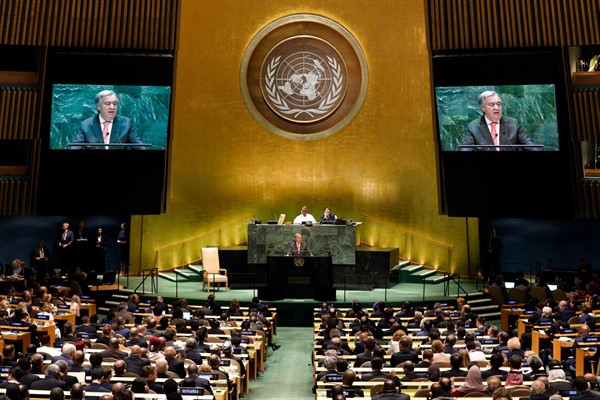When the United Nations commemorates its 75th anniversary next month, it will be in a somber mood. Well before COVID-19 hit, the Trump administration’s “America First” policies had deprived the world body of its traditional leader, the United States, while rising geopolitical frictions had paralyzed the U.N. Security Council. The coronavirus pandemic has reinforced these dynamics, accentuating U.S. unilateralism and exacerbating an increasingly heated rivalry between the U.S. and China. Much of the U.N.’s productive work has been brought to a standstill.
The Security Council dithered for months on a noncontroversial resolution to freeze violent conflict during the pandemic, thanks to the Trump administration’s resistance to an explicit mention of the World Health Organization, and its efforts to include language embarrassing to China. Given the dysfunctional state of U.N. diplomacy, holding the annual General Assembly by videoconference may be a blessing.
U.N. Secretary-General Antonio Guterres has adapted to these realities. Rather than announce a bold reform agenda, he has focused the “UN75” festivities on two broad initiatives. The first is winning intergovernmental endorsement for a general declaration of principles in support of multilateral cooperation, an effort the Trump administration nearly derailed. The second is consulting with global civil society on the directions the U.N. should go in during its next quarter-century—findings he will present to member states in September.

